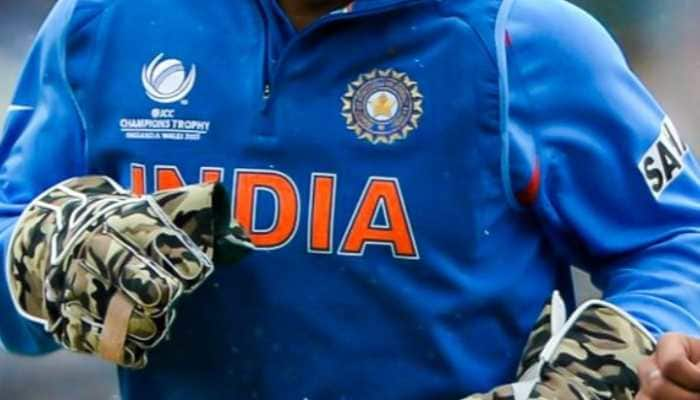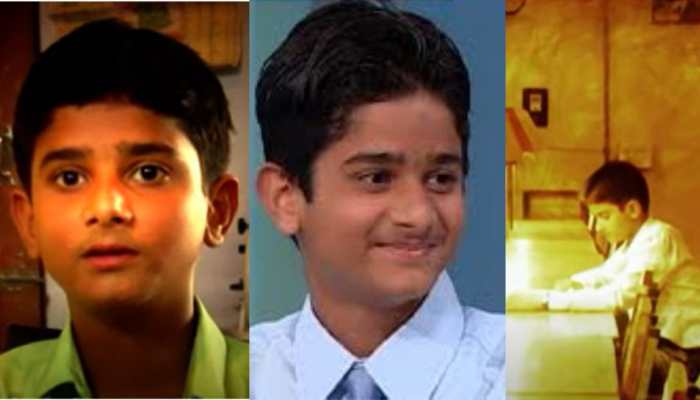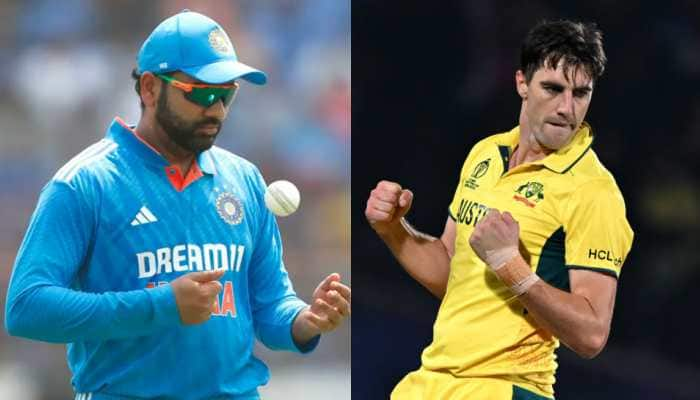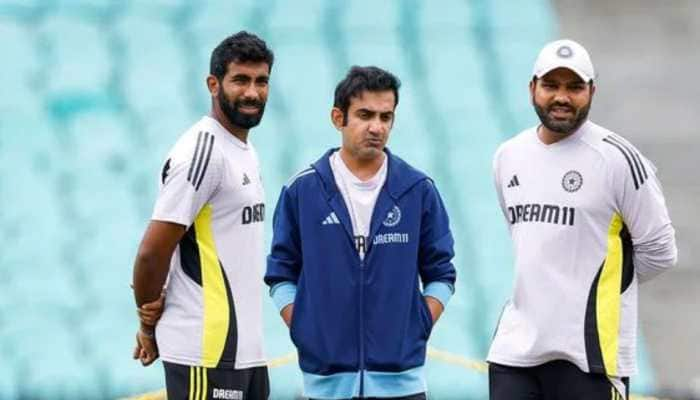Devendra Fadnavis denies of rotational chief ministership's decision, says 'it didn't happen in my presence'
Addressing media persons, Fadnavis said, "My resignation has been accepted by Governor Bhagat Singh Koshyari. We ran a clean govt in Maharashtra and tackled several problems together. The state govt stood by farmers during drought. I thank PM Narendra Modi, Amit Shah for letting me govern Maharashtra." He also thanked the people of Maharashtra for standing by him for the last five years.
Trending Photos
)
BJP leader Devendra Fadnavis resigned as the chief minister of Maharashtra on Friday amid a political deadlock between the BJP and Shiv Sena over the formation of government in the state. The BJP had emerged as the single-largest party by winning 105 seats while Shiv Sena got 56 in the 288-member state assembly. However, it could not stake claim to form the new government as an aggressive Shiv Sena decided to stay away from its alliance partner over its demand of the 50-50 formula, rotational chief ministership for a term of two-and-a-half-years each.
Earlier, Fadnavis met Governor Bhagat Singh Koshiyari and submitted his resignation.
Addressing media persons, Fadnavis said, "My resignation has been accepted by Governor Bhagat Singh Koshyari. We ran a clean govt in Maharashtra and tackled several problems together. The state govt stood by farmers during drought. I thank PM Narendra Modi, Amit Shah for letting me govern Maharashtra." He also thanked the people of Maharashtra for standing by him for the last five years.
"We fought the assembly election in alliance with Shiv Sena and won 160 seats of which the BJP emerged as the single largest party with 105 MLAs. Our strike rate has been better as we won 70 per cent of the seats we contested," said Fadnavis.
Referring to Uddhav Thackeray's statement, he said that the Shiv Sena chief in his first press conference had said that all the options are open for the formation of government despite we won election as alliance partners.
"We never took a decision of rotational chief ministership, at least it didn't happen in my presence. When I asked the party's national president about it he also denied of giving any assurance in this regard to Shiv Sena," added Fadnavis.
"In the last five years, I had a very good relation with Uddhav Thackeray. Politics and personal relations are two separate things," he further added.
During his five years of governance, Fadnavis faced several ups and downs. The most significant was Maratha agitation organised by a non-political outfit, Maratha Kranti Morcha, in August 2016. Marathas had organised a bike rally in Mumbai after the state administration announced the filling of 72,000 government jobs. The protest gathered steam. Into this morass stepped a then freshly-minted chief minister Devendra Fadnavis. He held direct communication with the group and promised to meet its demands. This politically influential community had been demanding a quota in jobs and education under the OBC category for decades, which was opposed by many previous Maratha chief ministers including Vilasrao Deshmukh and Sharad Pawar.
Strident protests were witnessed on the streets of Mumbai, where some Maratha demonstrators shouted casteist slogans against Fadnavis, who hails from the numerically insignificant Brahmin community. There was a sentiment of distrust towards the government. Certain vested political interests also shot from the shoulders of the Maratha protesters. It was a tangle that almost threatened to pull down the BJP-Shiv Sena government.
In the Maratha reservation matter, the Fadnavis government was up against a Supreme Court judgment of a 50 per cent cap on quota. The Bombay High Court had in 2014 stayed implementation of the erstwhile Congress-NCP government’s decision to provide reservation to Marathas. In November 2018, the Maharashtra legislature passed a bill proposing 16 per cent quota for Marathas under the socially and educationally backward class category. This increased the reservation in Maharashtra to 68 per cent, far above the Supreme Court cap. As expected, multiple petitions were filed challenging the decision. The government defended its move and the Bombay HC upheld it. “He (Fadnavis) would hold meetings with top legal eagles of the country to find a way out. The reservation, granted by the Bombay High Court, now stands challenged in the Supreme Court. But it hasn’t stopped the BJP from building a narrative that a Brahmin chief minister did what 10 Maratha CMs couldn’t do,” a BJP source said.
Several senior Maratha leaders from the BJP went to their constituencies to drive this point home, in a bid to lend authenticity to the narrative. "We took it upon us to spread the word. Since we are Maratha leaders, our community would trust us. We made use of that trust to build a positive image of Fadnavis. Ultimately, he had tackled the issue with a lot of care and sensitivity,” a senior BJP leader said. In one stroke, Fadnavis virtually dismantled the state’s long-held caste allegiances. His party has also largely succeeded in consolidating various regional aspirations in Maharashtra into a cohesive state aspiration.
The BJP and Shiv Sena, who are partners in the ruling alliance in Maharashtra, had fought the assembly polls together on October 21.
Stay informed on all the latest news, real-time breaking news updates, and follow all the important headlines in india news and world News on Zee News.
Live Tv







)
)
)
)
)
)
)
)
)
)
